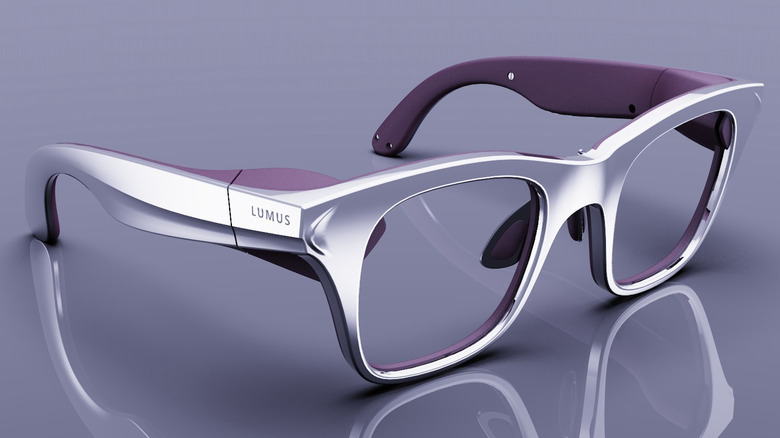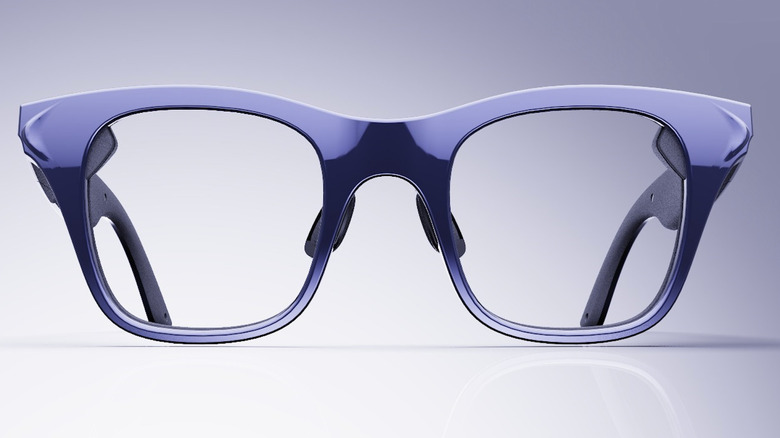Lumus May Have Cracked The Code For Smart Glasses That Don't Look Dorky
Lumus is a maker of optical waveguides, lenses embedded with mirrors paired with miniaturized projectors. This is the core tech that powers augmented reality (AR) glasses. Waveguides act as a screen by shining the tiny projectors at the embedded mirrors, which reflect the image to the wearer's eyes. At CES 2023, Lumus introduced the next-gen 'Z-Lens' Maximus 2D waveguide design that will pave the way for smaller and lighter AR glasses that don't look like cheesy '80s sci-fi movie props.
The biggest advantage of the upgraded Z-Lens is that it features a 50% smaller optical engine and also allows manufacturers more freedom in where they place the waveguide aperture. Lumus claims that the smaller device can be easily fitted inside the temple cavity of eyeglass frames. "Z-Lens can be integrated into finished products that appear virtually identical to standard eyeglasses," the company notes in its press release.
The renders of AR glasses featuring the next-gen Z-Lens waveguide tech look extremely clean and more like standard pairs of thick-framed eyeglasses. If this is any indicator of what retail frames using the tech will look like, it will be very difficult to discern a regular pair of glasses from advanced AR glasses. The renders also don't depict a front-facing camera, giving them much less of a creepy Google Glass vibe.
Taking a peek at normal AR glasses of the future
Another major benefit of the second-gen Z-Lens waveguide is that it enables "direct bonding of optical elements for Rx prescription glasses," meaning customers with prescription lenses will be able to use the tech without requiring thick inserts to use them as their everyday glasses.
Lumus touts a 2K x 2K resolution for its new and improved design. Current prototypes feature a 50-degree field-of-view (FOV), but the company says future iterations will have an 80-degree FOV or higher.
The company says it has also handled the issue of ambient light artifacts and eliminated light leakage, which means the content appearing on the lens will be invisible to anyone nearby. Lumus says it hopes to pave the way for "aesthetically-appealing glasses" with its upgraded waveguide system, but hasn't revealed the name of any well-known clients that will be using the tech in the foreseeable future.

